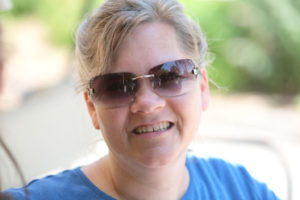
Yikes! Diagnosed With Celiac- Now What?!
Take a breath. It is going to be okay. The biggest part of the battle is figuring out what your are dealing with! Now, that you know you are diagnosed, you can empower yourself and gain greater health than you have had in a long time!
While it may not seem like it right now, this is one of the best auto-immune diseases to be diagnosed with. Now, hear me out. . .
There is no medication
- There is no medication, which means there are no nasty side-effects. Sometimes with medications the “fix” is worse than the illness.
- The disease is stopped through diet.
- Many things are reversed through diet. (It does depend on what damage was done while the disease was active and for how long it was active.)
- You have a measure of control, because you manage your diet.
- There are great resources, but you need to find reliable ones.
Scientist are always looking for a medication, a drug to quickly fix whatever the problem is. There are medications coming. Most of them are to help with being able to enjoy gluten occasionally. The problem is that with the “fix” to be able to eat gluten, it comes at a price of still not being able to absorb vitamins and minerals properly and so patients still end up with malnutrition, if they use the medication regularly. It is not a permanent fix and the medications they are working on are for occasional use.
Malabsorption is one of the biggest problems with celiac disease which leads to other diseases, illnesses and problems.
It’s All About The Diet
Knowledge is power! Understanding the diet and why you want to be strictly gluten free is the key to your health. You have so much in your power and control!
- Learn about celiac and have a good understanding of the disease
- Get knowledge about what is gluten free and how to read labels
- Understand that being gluten free is more than the ingredients used, but also involves how it is prepped and where
- Go cold turkey off of gluten (it’s okay to mourn what you are missing, but don’t wallow in it)
- Avoid oats for the first year (they are hard on the gut and your gut needs time to heal)
- Eat natural foods- fruits, vegetables, meats without sauces and lots of seasonings
- Go through your kitchen and make it gluten free safe
- What recipes do you have that just need a tweak or two to make it gluten free? Changing the noodles to be gluten free, different barbecue sauce or soy sauce, or using gluten free soup. . .
- Join a support group
- Look for Facebook pages to join: Gluten Intolerance Group and other gluten intolerance, celiac and gluten free groups and pages
- Join Pinterest boards to help you find information and recipes: (When I pin something that isn’t straight up gluten free, I always put in the comments, when it is pinned, what substitutes to look for and do.) https://www.pinterest.com/shannonsgrotto/boards/
- Find gluten free products you like
- You can learn a lot from interacting with those who have celiac and have been gluten free longer than you
- Discover what other products you need to watch out for: medications, vitamins, shampoo, deodorant, sunscreen, toothpaste, etc.
- Don’t cheat on your gluten free diet, it isn’t worth it
You Can Do This
Take another breath. There is a lot to learn and figure out and you will have trial and error as you begin to live a strictly gluten free lifestyle; which is absolutely necessary for anyone with celiac disease.
Give yourself time to mourn the things you can no longer have. It is hard, especially when you are told this is the change you have to make. Making dietary changes are always easier if it is something you really want to do, rather than being told you have to do it.
I have cried over not being able to order a pizza! This wasn’t possible 14 years ago, when I was first diagnosed. Many places who offer gluten free pizza and French fries aren’t really safe to eat. It sucks!!!! We all hate it, sometimes, and that’s okay. We all want to be “normal”.
What is “normal”

We all miss the days of trying out a new place and the freedom to order anything from the menu. Our new normal is about protecting our health and giving up some of those things.
Think about this for a minute. What is “normal”? The thing that helped me so much was when I was crying about wanting to be normal and it suddenly hit me, “What is “normal”?” Everyone has something, sometime. It may be diabetes, arthritis, severe allergies, anxiety, etc.
How many people do you actually know who don’t have a single health issue with themselves or a family member? Everyone has something!
Then, I realized that this is my “New Normal”. My “normal”, now is asking about gluten free processes and how food is handled, reading labels and making regular changes to recipes I want to make. It took time to get here. Give yourself time. You can cry and be mad, but don’t stay there.
This is long-term. You will get to place where you are absolutely wonderful and handling things really well and then have a rough time again. It is part of dealing with an ongoing auto-immune disease.
Motivation
Your motivation is to get a handle on your health now and for the long term! The risks for certain cancers, if you have celiac, are much, much higher if you aren’t strictly gluten free.
The good news is that the risks for these cancers normalize to the same risk as the rest of the population, that doesn’t have celiac, within 5 years of being strictly gluten free!
You have the power to strengthen your gut and potentially avoid more health issues. I wish I could say this worked out for everyone, but it doesn’t. However, you increase your chances of health by being diagnosed early and being strict with your diet.
Medical
I am not a medical professional. Always discuss your medical issues with your doctor and do your own research. The information I am sharing is from 14 years of experience in having diagnosed celiac disease, talking to other celiac patients, reading, talking to medical professionals and from conferences and workshops I have attended.
The recommendation is that all newly diagnosed celiac patients get a dexa-scan. This gives you a baseline that can be referred to from time to time to see how your bones are doing. Osteoporosis and osteopenia are complications of celiac disease.
It is a good idea to find out where your vitamin and mineral levels are, since celiac causes malabsorption often you will be deficient in many areas. Vitamin D is often low in celiac patients. Being low in essential and even trace vitamins and minerals can lead to complications and other health issues.
Auto-immune thyroid diseases and diabetes often go hand in hand with celiac. Being checked regularly for these issues is also a good idea.
Follow up
- It is typical to have a dexa-scan every 3-5 years to check on your bone health.
- If you are working with your doctor on your vitamin and mineral levels you should work out follow ups with your doctor
- Those who continue to have difficulties after going gluten free should have another blood test and possibly another biopsy. If follow up biopsies are necessary it should be after a year of strictly gluten free, unless there are severe issues.
- For most people with celiac, a follow up biopsy may not be needed for another 5 or so years.
- Get checked for auto-immune thyroid diseases and diabetes (they can show up at anytime and often go along with celiac)




 I have always had bad teeth. My teeth were soft and the enamel was ill formed. It was chalked up to bad prenatal advice my mom had received. My mom was told that it was bad for the baby if you drank milk while pregnant. This was always the reason I was told I had bad teeth. By the time I was 3 years old, I had to have all of my baby teeth filled. The dentist started me on fluoride treatments and I took fluoride pills for years! Still, my bad enamel was a problem.
I have always had bad teeth. My teeth were soft and the enamel was ill formed. It was chalked up to bad prenatal advice my mom had received. My mom was told that it was bad for the baby if you drank milk while pregnant. This was always the reason I was told I had bad teeth. By the time I was 3 years old, I had to have all of my baby teeth filled. The dentist started me on fluoride treatments and I took fluoride pills for years! Still, my bad enamel was a problem. My daughter who has similar dental defects to mine (and does not eat lemons) had delayed teeth. (I couldn’t find any toothy pictures.) She didn’t get her first two teeth until a week after her first birthday and then they came in 2 at a time. Her teeth are pitted and discolored. Her teeth had an odd, almost transparent look when they were coming in.
My daughter who has similar dental defects to mine (and does not eat lemons) had delayed teeth. (I couldn’t find any toothy pictures.) She didn’t get her first two teeth until a week after her first birthday and then they came in 2 at a time. Her teeth are pitted and discolored. Her teeth had an odd, almost transparent look when they were coming in. My teeth have gotten worse during this time and this is probably why! There is a discoloration line between the top of my top teeth and the bottom of my top teeth. The top part is quite dark. (This picture was 3 years ago.) I also had some issues with dry mouth. I woke up one morning with a very dry mouth and my cheek, that was against the pillow, was stuck to my teeth. On that side the teeth have become deeply pitted.
My teeth have gotten worse during this time and this is probably why! There is a discoloration line between the top of my top teeth and the bottom of my top teeth. The top part is quite dark. (This picture was 3 years ago.) I also had some issues with dry mouth. I woke up one morning with a very dry mouth and my cheek, that was against the pillow, was stuck to my teeth. On that side the teeth have become deeply pitted. I put my toothpaste on my toothbrush, drop 1 drop orange and 1 drop bergamot and brush my teeth. I have seen improvement in my tooth color and the sensitivity of my teeth. I haven’t had a cavity since beginning to do this 1 1/2 years ago. It is remarkable, to say the very least!
I put my toothpaste on my toothbrush, drop 1 drop orange and 1 drop bergamot and brush my teeth. I have seen improvement in my tooth color and the sensitivity of my teeth. I haven’t had a cavity since beginning to do this 1 1/2 years ago. It is remarkable, to say the very least!

Recent Comments